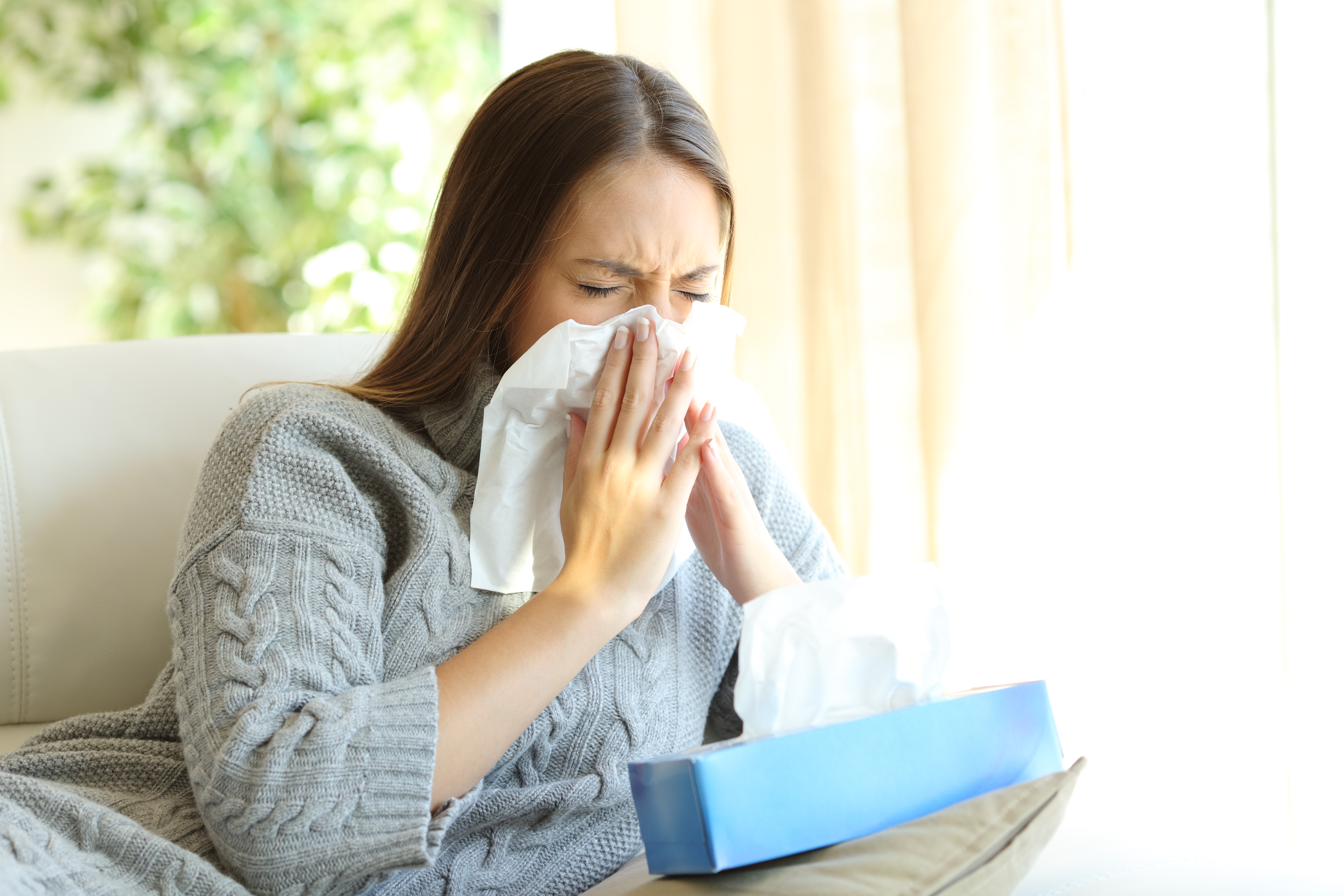It’s that time again. The sneezing, sore throat, watery-eye, runny nose season. Spring has sprung and so have your allergies, even when you’re indoors. An indoor air filter may be your answer. These are devices that can ease your symptoms and allow you to reclaim your home. Here’s a rundown of the different types of filters and how they can help give you relief.
MERV Rating
Before we discuss each specific filter, it’s important to understand MERV Ratings. MERV stands for Minimum Efficiency Reporting Value, which is a system that ranks a filter’s efficiency. MERV ratings go from one to 20. Higher ratings indicate that a filter more effectively traps debris than one with a lower rating.
Pre-filter
A pre-filter is designed to help optimize your air filtration system. It’s positioned so that it can intercept large particles like dust, lint, and hair before they reach the main filter. This way, the primary filter can more effectively trap harmful, microscopic allergens.
Spun Fiberglass Panel Filter
A fiberglass filter is the most commonly used type of HVAC filter. This variety of filter is made of fiberglass strands and traps large airborne contaminants such as dust. A fiberglass filter can be used with air conditioners, as well as furnaces. It’s called a “throw-away” because it needs to be thrown away and replaced monthly.
A filter made of fiberglass is dirt cheap — usually only $1. Despite the price tag, a fiberglass filter isn’t the best investment, because it doesn’t catch the tiny particles responsible for allergy and asthma symptoms. A fiberglass filter only captures large debris, which can clog and overwhelm your HVAC. A fiberglass filter has a MERV rating of only two to three.
Pleated Filter
A pleated air filter is constructed of folded sheets of polyester or cotton. This accordion design fits more fabric into a smaller area, allowing the filter to catch more particulates than a flat-surfaced one. The more pleats a filter has, the more easily air can flow through it.
Because of this, it won’t strain your HVAC system. A pleated air filter has a high dust capacity and is very economical because it only has to be replaced every 60 to 90 days. A pleated filter has a MERV rating of six to 13.
Washable HVAC Filter
A washable HVAC filter will be easier on your wallet than a pleated or fiberglass filter because it just needs to be cleaned, rather than replaced. Simply rinse with water, let it dry, and put it back in the system. Small HVACs usually use a washable filter, but they’ll also work in large systems. A washable filter has a MERV of one to four.
Electrostatic Filter
This type of polyurethane/polypropylene filter uses static electricity to catch contaminants. When a pollutant enters the filter, it passes through a positively charged layer. This positive charge is shifted to the particle. Next, the particle enters a negatively charged layer and sticks to the surface. Because it effectively removes large contaminants, dust mites, and pollen but may miss smaller particles, it has a MERV rating between one and three.
Activated Charcoal Filter
As its name suggests, an activated charcoal filter, also called a carbon filter, works by trapping gas molecules on highly porous charcoals that each have a huge surface area of 300 to 2,000 meters per gram. A charcoal filter cannot remove particulate pollutants such as dust, mold or pollen from the air. However, it does remove volatile organic compounds (VOC) such as benzene (paint), formaldehyde (carpets), toluene (glue), cosmetics and aerosol sprays. While they’re not particulates, these substances can be irritating if you’re prone to allergies. An activated charcoal filter has a MERV rating of eight.
HEPA Filter
The high energy particulate air (HEPA) filter is the Lamborghini of filters. It’s the most efficient type of filter and eliminates almost all contaminants. A genuine HEPA filter removes 99.97 percent of all 0.3-micrometer airborne particulates and has the highest MERV rating, from 17 to 20.
However, a HEPA significantly restricts airflow, so you’ll need an HVAC system equipped to handle it. In order to keep allergies at bay and preserve your system, make sure you have Progressive Air Systems regularly clean your ducts and change your filter.
Hybrid Filter
A hybrid filter is a HEPA filter combined with a charcoal filter. Because it uses multiple means of cleaning up airborne debris, it effectively frees the air of contaminants that can trigger or exacerbate allergies, asthma, and COPD.
Even if you barricade yourself in your house, allergens will find you. According to the EPA, indoor air quality can be two to five times worse than outdoor air. A filter is a great solution, but one with a low MERV rating may clog and one with a high rating make choke off airflow. Backed by 34 years of experience, Progressive Air Systems can take the confusion out of air filters and find the one that will help you catch your breath.

SCHEDULE AN APPOINTMENT
LOCATIONS
Port Richey
5907 Dasher Court
Port Richey, FL
727-339-1131
Tampa
6375 Harney Rd
Tampa, FL
727-339-1131
INFORMATION
© 2025 Progressive Air Systems. | Privacy Policy
